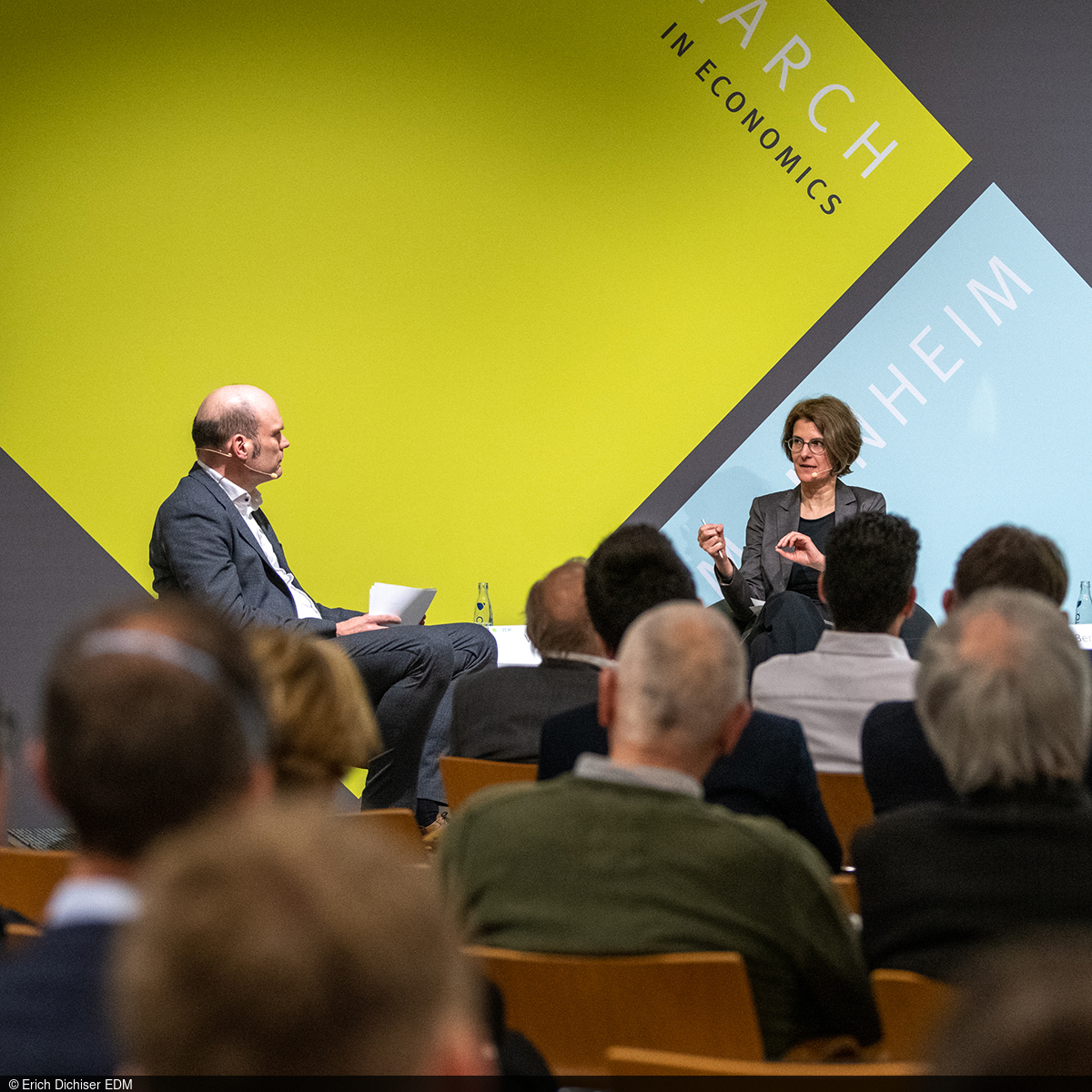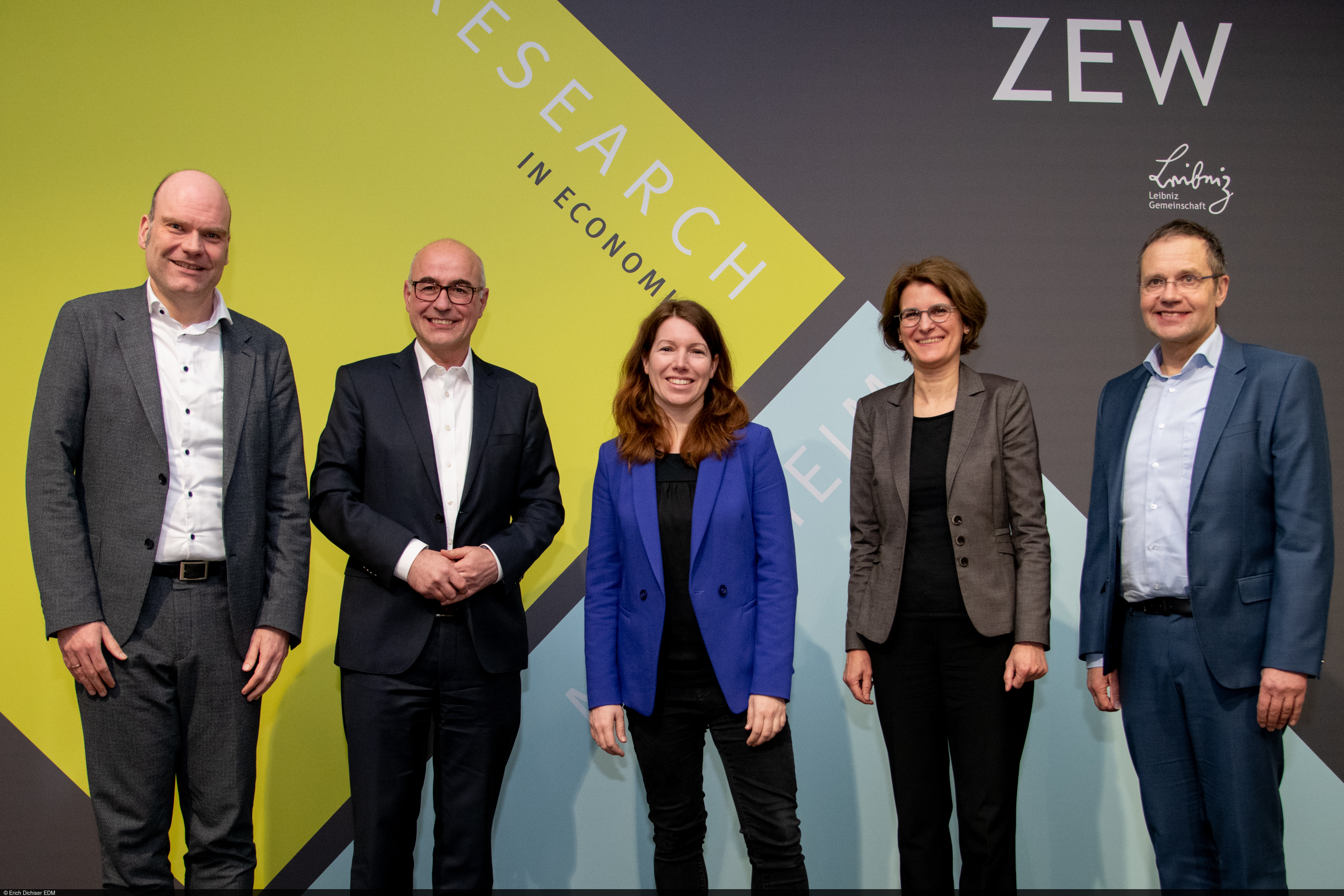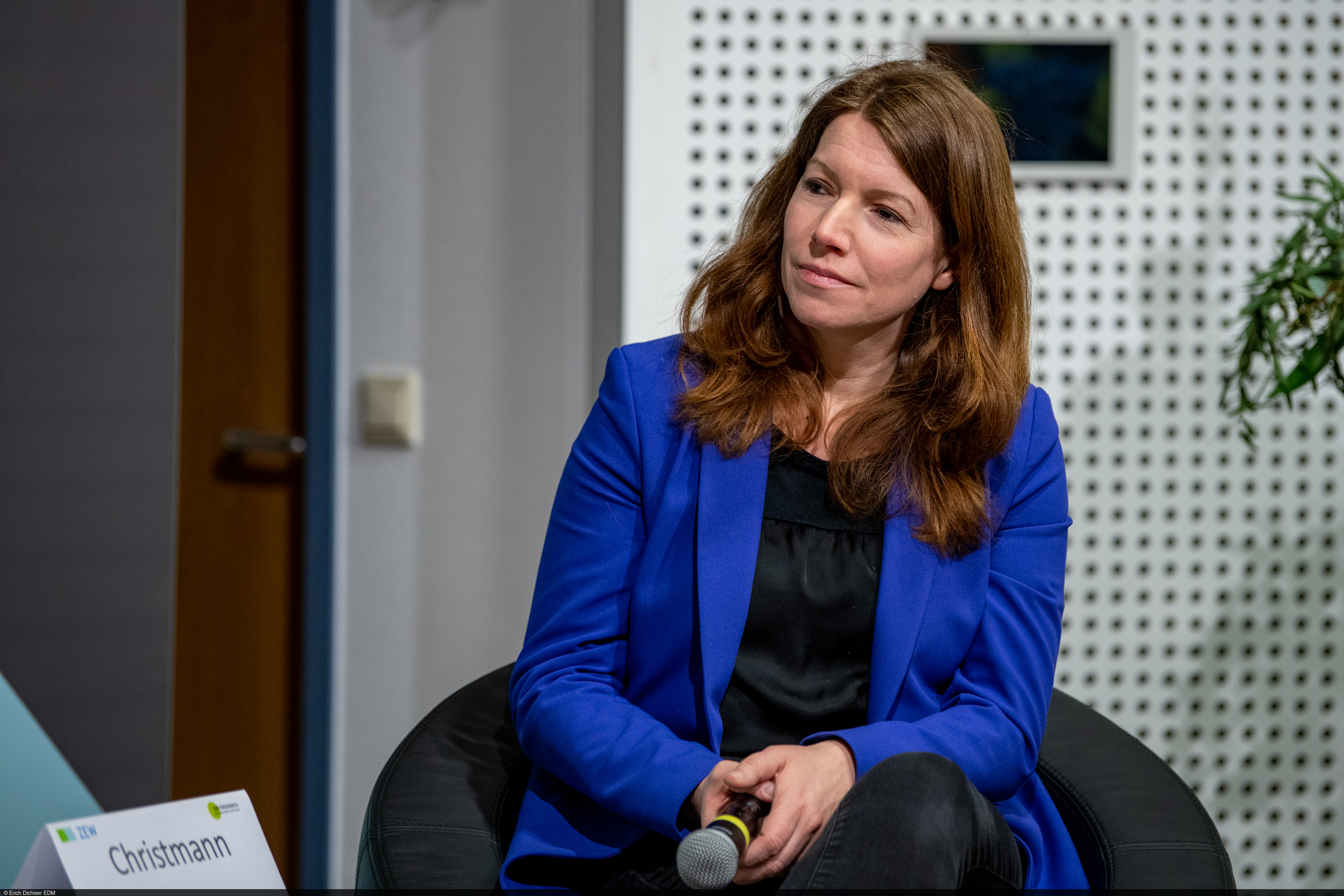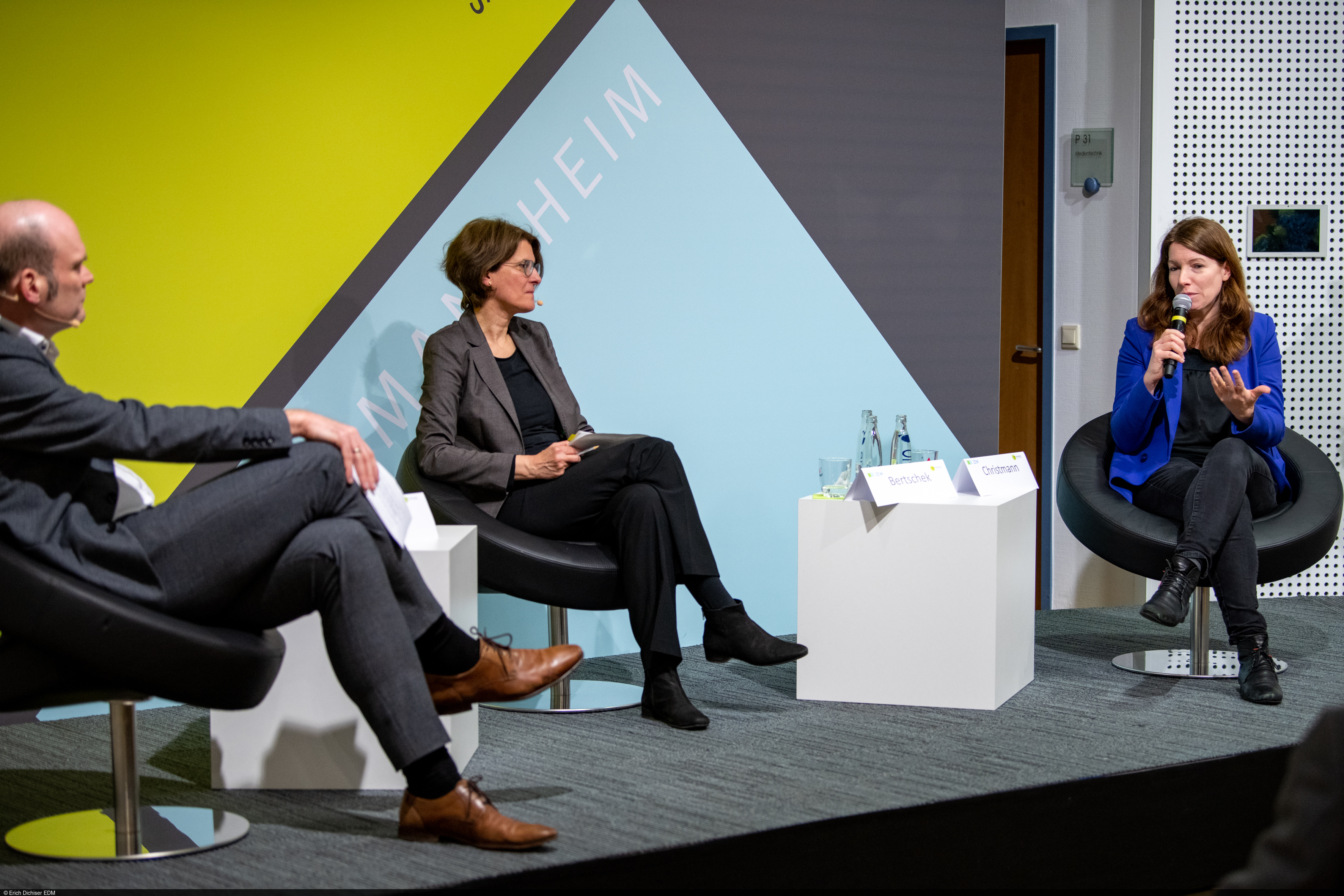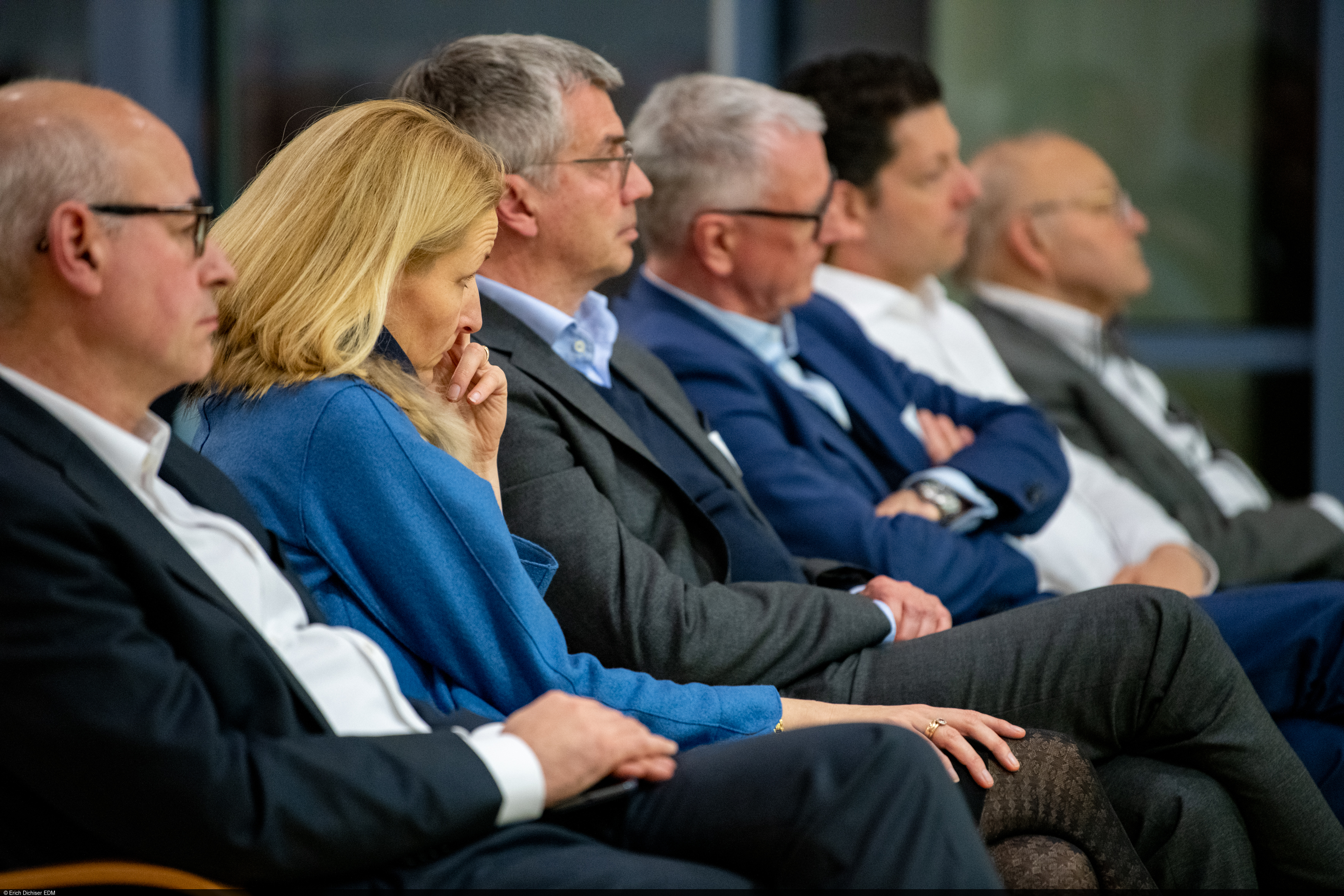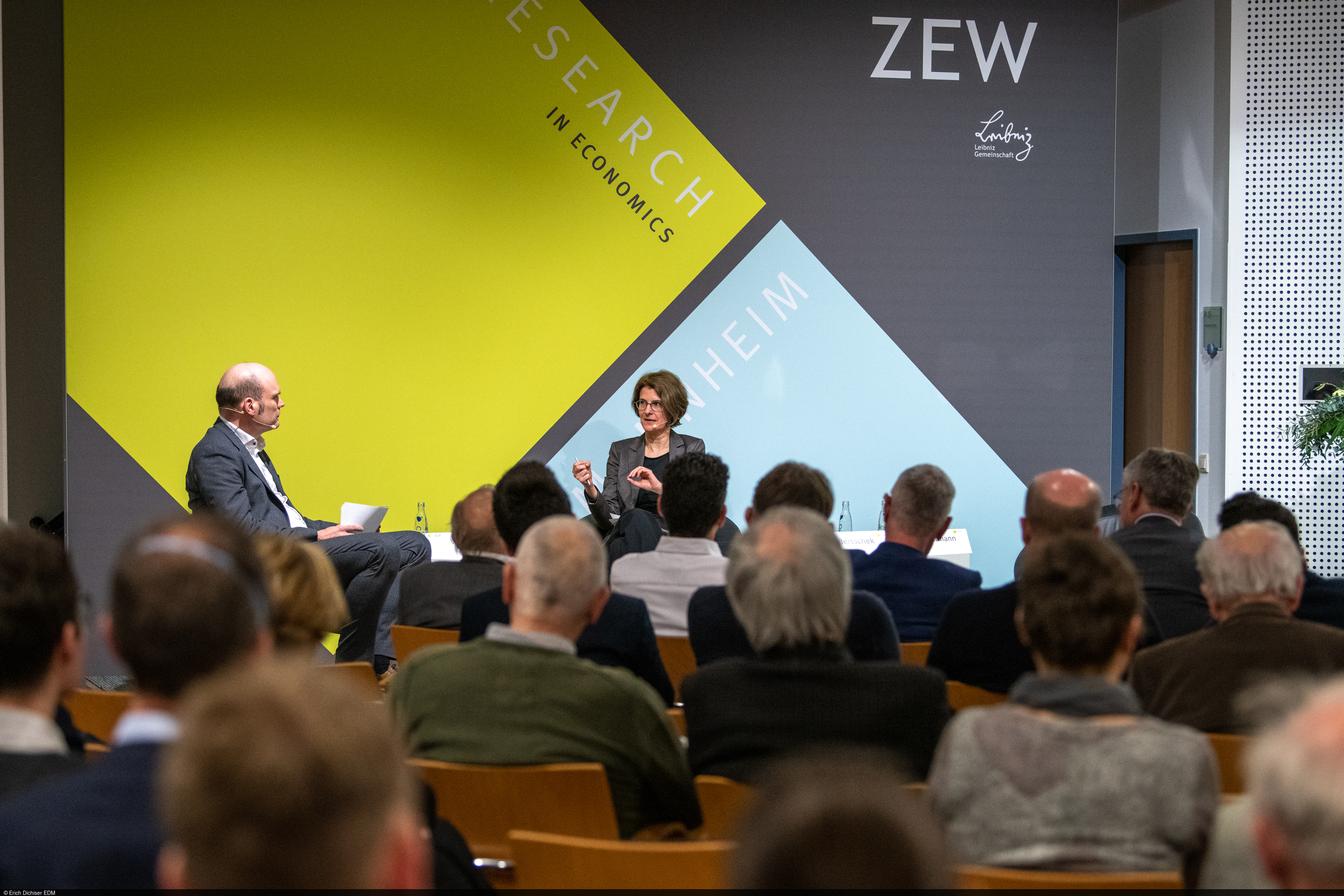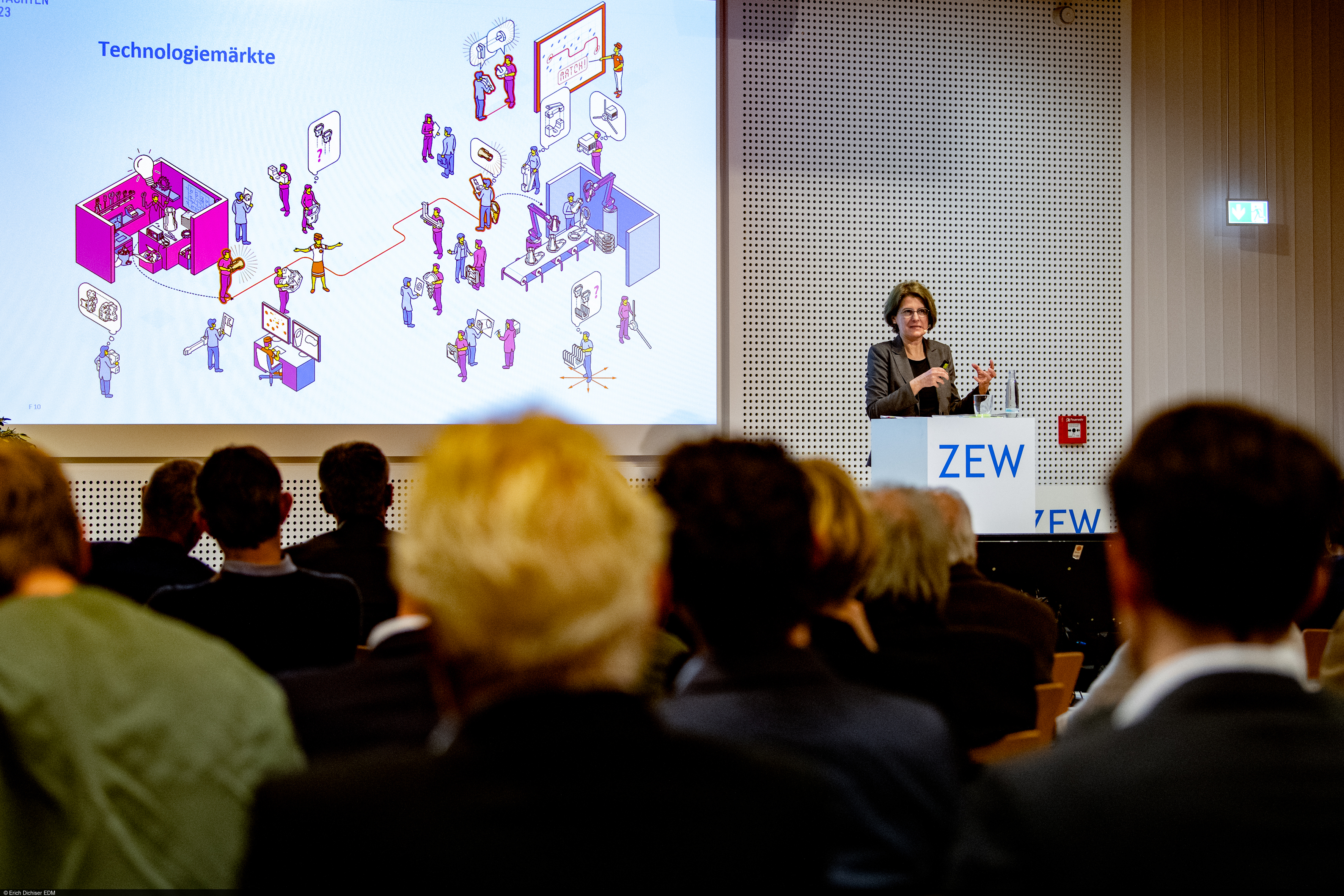Overcoming a “Silo Mentality” and Raising Innovation Potential
EventsFirst-Hand Information on Economic Policy on the EFI Annual Report 2023
In their Annual Report for 2023, the Commission of Experts for Research and Innovation (EFI) stated a shift in perspective is “much-needed” in order to expedite further digitalisation and energy transition in the interest of combating a plethora of social challenges. Such a shift requires policymakers to surmount existing “silo mentalities” and promote interdisciplinary cooperation.
At the most recent event in ZEW’s series “First-Hand Information on Economic Policy” on 7 March 2023, Professor Irene Bertschek, head of the “Digital Economy” Unit at ZEW and deputy chair of the EFI Commission, and Dr. Anna Christmann, Commissioner for the Digital Economy and Start-ups at the Federal Ministry for Economic Affairs and Climate Action, discussed the governing coalitions’ goals for and measures regarding innovation policy. Jan-Martin Wiarda moderated the discussion.
Germany is in need of harmonised data-protection laws and less bureaucracy
“We are in serious need of a uniform interpretation of current data protection laws at a federal level which promotes knowledge acquisition in research instead of obstructing it,” asserted Irene Bertschek at the commencement of the event. The decision to relocate the cancer research arm of BioNTech, a biotech company central to the production of the Covid-19 vaccine, to the UK was mentioned as one example of the negative results of data access restrictions. “In addition, living labs should be used to a greater extent to test innovations in a temporally and spatially limited but realistic environment and to further develop both innovative solutions and the legal framework,” Bertschek added. Dr. Anna Christmann, member of the German Bundestag, also considered the question of how the transfer from research to practice can be improved in Germany, especially compared to other European countries, to be of central importance. “A strong European innovation landscape can be built primarily through close cooperation between science and business”, said Christmann. She sees the European Data Act as an opportunity to catch up: “The Data Act offers a high potential for innovation because it improves the availability of data.”
Improving the realisation of ideas through technology markets
Besides current research and innovation policies against the backdrop of the recent crises, technology markets are a key concern of this year’s EFI Report. Irene Bertschek stressed that, “In Germany, the innovation potential of the technology markets is hardly exploited compared to other countries.” Therefore, it is high time to finally make the patent offices’ databases more user-friendly in order to better match technology providers and demanders. “Small and medium-sized enterprises in particular need support in their activities on technology markets, as they often find it more difficult to identify suitable technologies and assess the value of IP rights such as patents. That is why easily accessible information and consultation services should be expanded and standard contracts created,” Bertschek demanded. In order to improve technology transfer, Christmann added, it is important that “the forthcoming German Agency for Transfer and Innovation (DATI) strengthens the exchange between companies, administration and society, especially at the regional level.” With all the planned innovation policy measures of the government coalition, it is now essential to set priorities and start implementing projects as quickly as possible, said ZEW economist Irene Bertschek.
